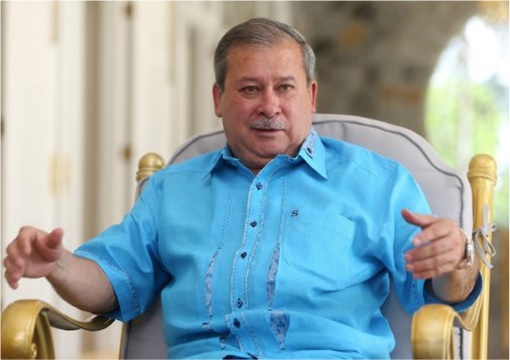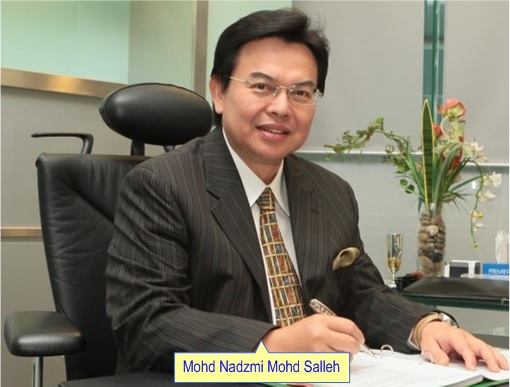HIS ROYAL Highness Sultan Ibrahim Ismail of Johor frequently advises Malaysian policymakers and the public to learn from Singapore's success story.
As Singapore's closest neighbour, the ruler knows intimately how far the island nation has gone ahead in all facets of development especially its education system which produces world-class human capital.
Singapore is rated at the top for quality education which is based on English as the medium of instruction.
Malaysia has a lot of catching up to do but it has become a standard practice for our public service officials to be sent abroad many thousands of miles away to as far as the Scandinavian countries and even beyond to pick up a few tips on how to improve our standards and service quality. The buzz phrase in Malaysia is "Improving our delivery system".
But have our public sector bosses and other officials made it a point to learn from Singapore, just across the Causeway?
Apart from the annual round of golf among senior civil servants of both countries, I hardly have read of such "lawatan sambil belajar" or study tours by our officials who seem to have a knack for such costly visits to faraway places, including attending seminars and conferences.
To cite an example, there's a lot that Kuala Lumpur City Hall (DBKL) officers could learn from how Singapore's Housing Development Board (HDB) goes about planning and implementing its public housing.

The HDB story is recognised as the world's most successful public housing model and singularly credited for providing housing for over 85% of the population in the city state.
Look at how well managed and clean the HDB flats are. The residents' associations in these flats are also another thing that DBKL and other local authorities can adopt as they create a closely-knit community in these settlements.
I had a peek at how well things are run over there in August last year when the then member of Parliament for Marsiling, the constituency nearest to Woodlands just fronting Johor, took me on a tour of the area. The constituency has about 150 blocks of flats!
Hawazi Daipi, an ex-Singapore Berita Harian journalist, was a four-term MP and senior parliamentary secretary before he retired last year.
By the same token, our local authority officers who run other cities and major towns as well as those managing public transport, could also organise study tours to Singapore.
I am confident they will come back with lots of useful and relevant lessons on public housing, public transport and traffic management systems.
I cannot understand this "mental block" among our officials that tends to make them reluctant or avoid making such study tours to Singapore which would also lead to so much savings on government expenditure.
It also would be useful for the Malaysian Anti-Corruption Commission to learn from its counterparts in Singapore on more effective means to tackle corruption because the island nation is ranked as one of the least corrupt in the world.

It has become quite a standard operating procedure for our Education Ministry and the Higher Education Ministry to come out with their Education Blueprint detailing ways and means to take the Malaysian education standard forward in meeting the needs of globalisation and our Vision 2020 of becoming a developed nation.
Again, in mapping out these blueprints, which are reportedly very costly to prepare, did our officials study the Singapore model?
I know that the Singapore government would only be too willing to share its expertise in education and other fields.
Peter Ong, a journalist friend who is associate editor of Singapore's Lianhe Zaobao newspaper, told me that over the last several years, China has sent some 10,000 young officers to Singapore on study missions.
And many of these officials later had fast-tracked promotions to be mayors of cities and governors of provinces in China.
Back to the "mental block" that I mentioned above, a prominent Malaysian public transport industry entrepreneur told me of how he was fighting hard in the 1990's to get the Economic Planning Unit (EPU) to adopt the Singapore business model for a train project in Kuala Lumpur.
The Singapore government invested in the Mass Rail Transit (MRT) project because of its huge capital expenditure (capex) and such a project won't be bankable or viable as a business.

"Therefore the operating company only bears a fraction of the capex and the balance is taken up by the government as national infrastructure costs. By adopting this business model, the operating company is able to run profitably and in the long run will not be a burden to the government and the project is viable," said Tan Sri Nadzmi Salleh.
It's only a one-time support by the government but Nadzmi said the then director-general of the EPU was in no mood to entertain the Singapore business model and even told him bluntly that he did not want to hear anything about it.
"Looking back, I would say this kind of attitude shows we are 'bodoh sombong' (foolishly arrogant)," he said of the mental block.
He said had the Singapore model been adopted, the public transport operators in Malaysia would not be in perpetually loss-making situation as they are now and have to be finally bailed out by the government again and again.
Bilateral ties between Malaysia and Singapore now under prime ministers Datuk Seri Najib Razak and Lee Hsien Loong are now at their best ever status and to our key officers running the various agencies, let me say, "remove your mental block and learn from Singapore." - Sundaily



No comments:
Post a Comment
Note: Only a member of this blog may post a comment.